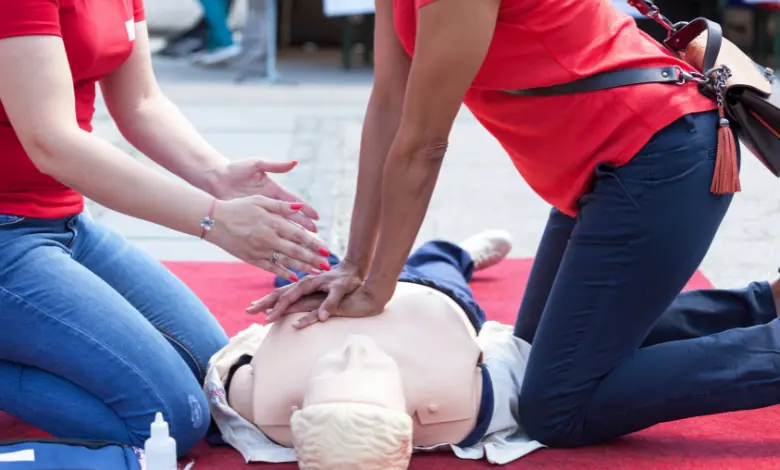4 Common Misconceptions About CPR Certification Renewal

Did you know that over 350,000 cardiac arrests occur outside the hospital each year in the USA?
An efficient response to emergencies relies on CPR education and certification. However, there are several misconceptions about CPR certification renewal. And these can potentially hinder the maintenance of these essential skills.
In this piece, we aim to debunk some common myths. We will also highlight the importance of staying updated with your CPR certification. So, let’s dive in!
Common Misconceptions on CPR Certification Renewal
Here’s a quick overview of the misconceptions we’ll be tackling. These points shed light on the misunderstandings surrounding the renewal process. Let’s explore them one by one:
CPR Certification Lasts a Lifetime
One of the most common misconceptions is that it never expires. While some skills may stick with you for life, unfortunately, it’s not the same with CPR training.
Associations recommend renewing your certification every two years. This will ensure your skills are up-to-date with the latest techniques and guidelines.
Renewal Courses Are Identical to Initial Training
Many assume that CPR certification renewal involves repeating the course they took initially. This is not the case. Renewal courses refresh and update existing skills rather than teach new ones.
Also Read: What causes people to be fearful of performing CPR?
Only Healthcare Professionals Need CPR Certification
CPR certification is not just for healthcare professionals. With the increasing prevalence of cardiac arrests in public places, it is vital for individuals from all walks of life.
From teachers and coaches to parents and caregivers. Anyone can benefit from being certified in CPR.
Renewal Courses Are Expensive and Time-Consuming
Some people refrain from renewing due to the misconception that it is expensive and time-consuming. However, there are now online options available for CPR renewal courses, such as MyCPR NOW. These courses offer convenience and flexibility while also being more cost-effective.
Importance of Staying Up-To-Date With CPR Certification
In addition to dispelling common myths, it is crucial to have updated certification. In an emergency situation, every second counts. And having current knowledge and skills can make all the difference in saving a life.
Additionally, many employers now require employees to have valid CPR certification. This has now become part of their job requirements.
Renewal Process Insights and Updates
The process of renewing your CPR certification is easier than you might think. It often involves participating in a refresher course. You can do this online or in person, focusing on updating your skillset.
The renewal course usually takes less time than the initial certification. It’s designed for those who already have a foundational understanding of CPR techniques.
Always remember that the renewal of your CPR certification is not just a formality. It’s imperative to ensure you’re equipped with the most current lifesaving techniques.
Take the Next Step Toward CPR Certification Renewal
Renewing your CPR certification is an essential part of maintaining your lifesaving skills. So, staying updated with the most recent guidelines and techniques is crucial. Don’t let misconceptions steer you away from this vital process.
Remember, your CPR certification renewal isn’t just a document. It’s a testament to your commitment to preparedness when life’s most challenging moments arise. Don’t wait another day to renew your CPR certification today!
Did you find this article helpful? Visit more of our blogs!






